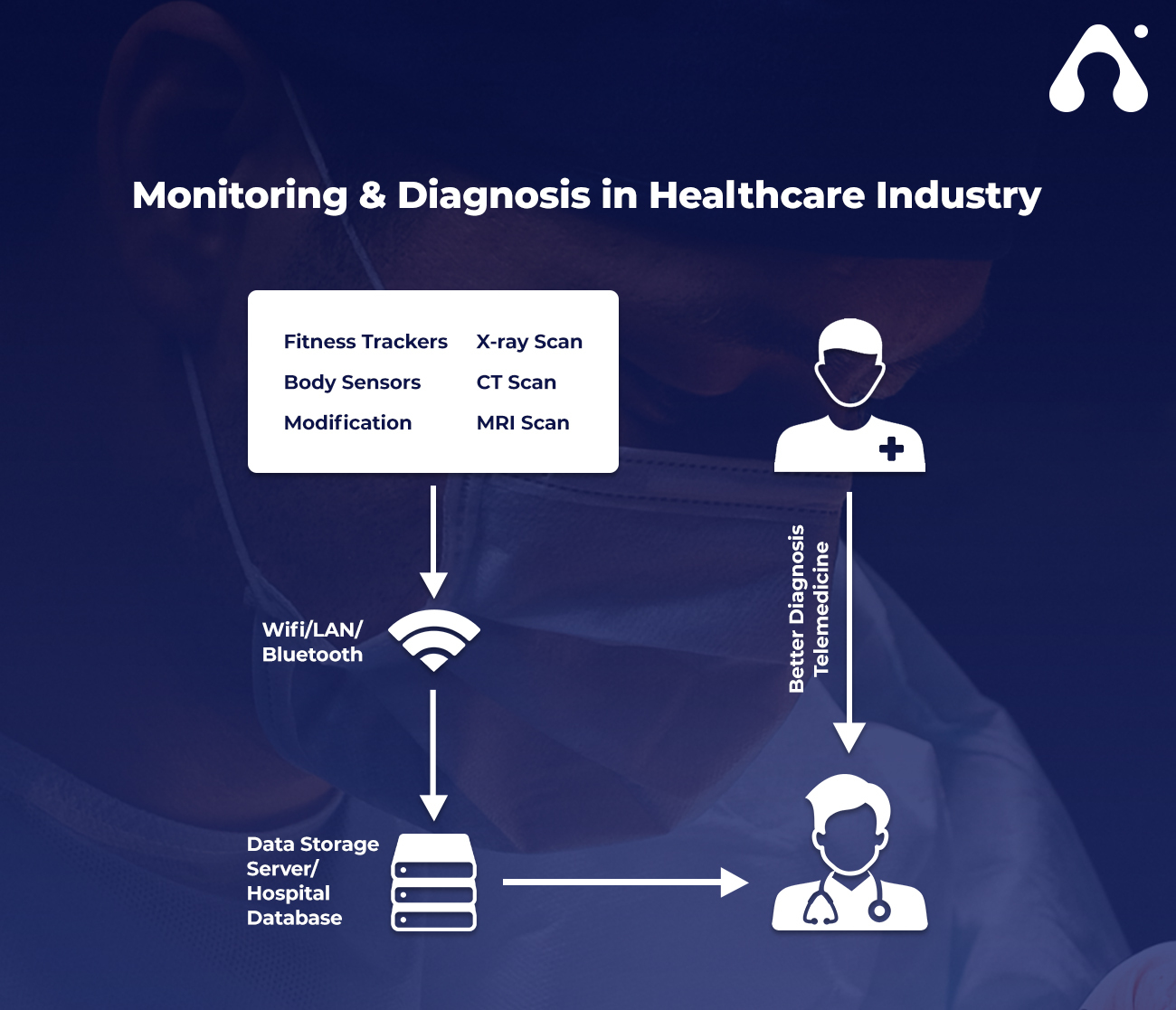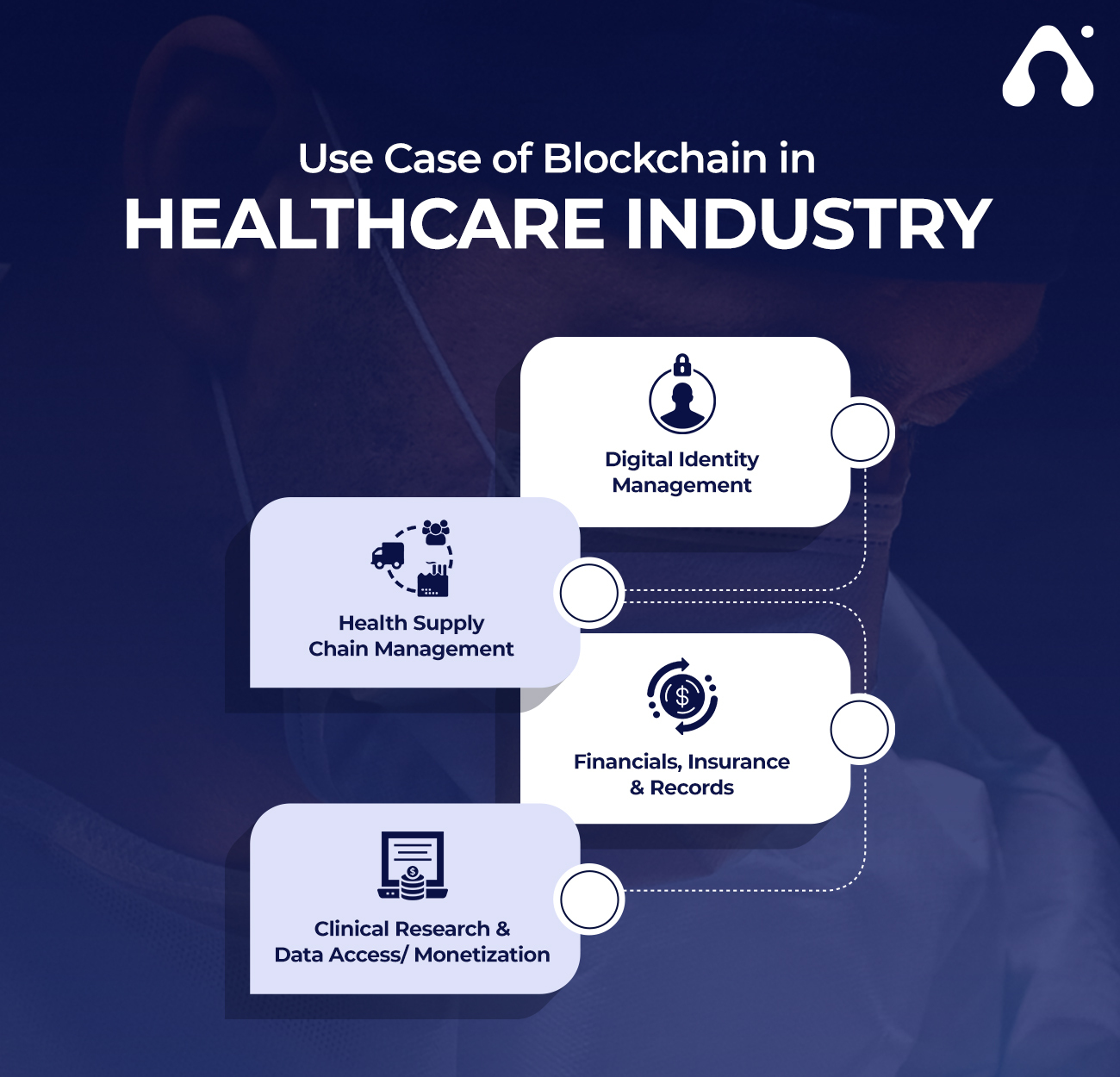I remember the time as a kid when visiting a doctor was a disaster. The long queue and appointment time used to be a time-taking process. This was not the end, it took approximately two days to get the reports. This bygone era is all over and we have reached a whole new level now. […]
Updated 25 January 2024

Global Delivery Head at Appventurez
I remember the time as a kid when visiting a doctor was a disaster. The long queue and appointment time used to be a time-taking process. This was not the end, it took approximately two days to get the reports.
This bygone era is all over and we have reached a whole new level now. With the addition of better customer experience, the healthcare industry is slowly depending upon digital transformation. Even in the coming year, we will be embracing new trends in the healthcare sector including healthcare mobile app trends.
As per the stats, on average, more than 10 thousand people reach the age of 60 daily. However, there are technologies through which it is easy to monitor the health of the person to ensure that they are safe (we can never be sure about health issues in old age). It is a great way to have caregiving machines in the market for users to offer them support.
Before we get into the healthcare mobile app trends, let’s take a look at the market as a whole. We want to persuade you right away that the game is worth your time and money.
Statistics show that the future of telemedicine industry will grow in popularity among all user groups. Check it out for yourself! Here’s some more data to persuade us to think about healthcare market trends:
Don’t you think that’s quite impressive? However, before we get into the meat of our subject, here are some interesting data about the use of mobile apps in healthcare:
The acronym PGHD stands for Patient-Generated Health Data. That example, the first trend in mobile healthcare is concerned with information generated by app users:
So you’ve figured out what it’s all about? Any data describing a user’s personal history (he is also a patient) is included in PGHD: the history of his condition and recovery.
According to projections, the number of tailored mobile application development services will have increased by 40% in 2021, surpassing $ 35 billion.
The topic of enhancing mobile app security will receive specific emphasis. This is true in all fields, and the healthcare industry is no different. Of course, we’re dealing with very personal patient information that needs to be kept safe. Nobody wants his or her personal information to be misplaced or misused.
Data protection, dare I say, is a big responsibility, and it is unquestionably one of the healthcare industry’s challenges. That is why you should carefully choose your app developer, one that is well-versed in information security issues.
As a side note, new data protection and storage solutions are continually being developed. Blockchain, Bitcoin, and enhanced ways to authorize users are just a few examples.
By the way, Blockchain has risen to the top of the 2021 healthcare trends list, which is unsurprising given its tight ties to data security. The blockchain allows for the digitization of many operations, the use of cryptography, the creation of universal standards for all network participants, and other similar new ideas that help to improve data security.
Impact of Quantum Computing in mobile apps is still thriving in the industry to combine machine learning to work on surgery with annotations and medical tools. It has the potential to grow as compared to its past performance and actualization. This can optimize the application in terms of drug discovery, genomics, and medical imaging.
This can include all the scenarios with its computational power to thrive in the market. The major focus is to offer results for complex problems during the initial stage such as comparisons & interactions of drugs, sequencing human genomes, and so on. It is one of the famous healthcare mobile app trends that is widely used.
The data can be overwhelming if the discoveries are not processed properly. The computation must be as per the discoveries since tech giants are already a step forward in terms of quantum computing. People are getting familiar with the idea of computing with capabilities and formats as per technology.

Internet of things(IoT), can aggregate and share information directly with each other and cloud, making it attainable to collect, record, and analyze new data streams more accurately and faster. Hence resulted in improved care quality and access in the healthcare industry.
IoMT is a submarket of the Internet of Things (IoT), from which several subsets of the technology have emerged. This is the future scope of the healthcare industry. It is added to the healthcare mobile app development that can change the way we depend on the internet.
Where IoT refers to all web-enabled tools, from smart cars to Internet-enabled kitchen instruments, IoMT includes only medical devices that have Internet connectivity.
IoT technology enables virtually any medical device to collect, analyze, and send data across the Web. Not only can digital gadgets, such as heart monitors, be connected to the Internet, but so can non-digital items like hospital beds and pills.
Yes, pills. But more on that in a moment.
Essentially, medical equipment and healthcare products share data in real-time on the internet, and with everyone who has a legitimate need for the information. This has made it a part of emerging healthcare technology trends.
Of course, the healthcare app industry’s development trends would be incomplete without such cutting-edge IT fields as artificial intelligence and machine learning. By extension, the ability to conduct a detailed predictive analysis is a logical development of AI and machine learning. But, first and foremost, let’s get this over with.
This makes companies and healthcare industries invest in the development of mobile app with AI. There are mobile health trends that are added to the big data & AI in the healthcare industry to increase the influence in the market.
When it comes to medically creative healthcare mobile apps, we should note the following areas where AI and machine learning would be invaluable: instrumental diagnostics, drug research, and risk assessment for patients with various diseases.
Blockchain technology in the healthcare industry runs on a method of peer-to-peer authorized transactions. Whether it’s a record being added or currencies being sent out, everything is recorded on the chain’s digital ledger.

The ledger is duplicated many times over on computers within the network. This means that the database is more secure because it is stored across multiple machines. However, an expert blockchain developer can easily manage such a type of work in innovative healthcare apps.
A chatbot is a software that can imitate a consultation with a user in natural language through messaging applications, websites, mobile apps, or the telephone. These are the major Mobile App development trends in the healthcare industry for chatbots.
The chatbot is a vital part of the industry in the present time. The healthcare industry also focuses on the chatbot making it efficient to workaround.
There are many benefits of using geolocation based apps. It is one of the most recent trends in the healthcare industry.
We’ve previously talked about geolocation a few times. For example, in one of the articles, we showed how to construct a GPS application in detail and the scenarios in which knowing the user’s location would be incredibly useful.
When it comes to creative healthcare mobile apps, all things you should know about geolocation implementation that will be useful in the following scenarios:
It’s not easy to produce an effective application that can compete successfully with other programs in the healthcare industry, because app developers must consider a number of factors, including the digital health trends we’ve discussed extensively. As a result, you must carefully select a development team.
The introduction of healthcare application development services has resulted in a paradigm shift in the healthcare industry. Along with facilitating access to healthcare services, healthcare mobile app developers can play an important role in the growth of new-age enterprises. Companies should only consider the demands and desires of their target audience when selecting a healthcare mobile app developer for application development. If they stick to the fundamentals, their business will rise to new heights.
Q. What are technology trends in healthcare?
Everything connected to remote monitoring and data management will reach a peak in the following year, whether it's telemedicine, AI, or Cloud computing. In addition, focused and individualized care for critical diseases is a growing trend that is expected to continue in the coming years.
Q. What are some important future trends in the healthcare industry?
E-consultations, telemedicine, real-time diagnostics, and access to digital therapies supplied through immersion technology tools are all examples of improvements in the healthcare industry. Precision medicine can be developed through genetic analysis, clinical data storage, and big data and analytics.
Q. What current technologies are currently being implemented in health care?
In 2022, the most promising health technologies include artificial intelligence (AI), blockchain, voice search, chatbots, and virtual reality (VR). Healthcare executives have long been frustrated by the absence of technology stacks and solutions that allow for meaningful marketing customization.


Elevate your journey and empower your choices with our insightful guidance.

Global Delivery Head at Appventurez
Ashish governs the process of software delivery operations. He ensures the end product attains the highest remarks in qualitative analysis and is streamlined to the clientele’s objectives. He has over a decade of experience as an iOS developer and teams mentorship.
You’re just one step away from turning your idea into a global product.
Everything begins with a simple conversation.